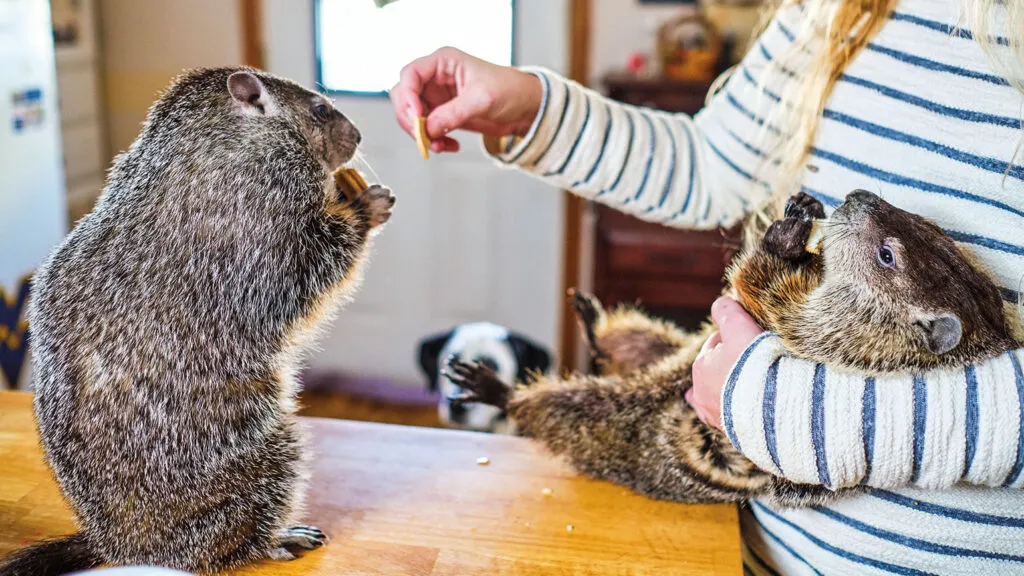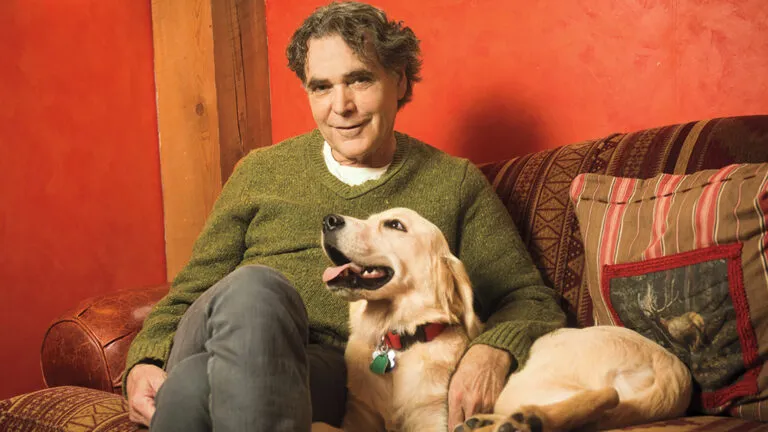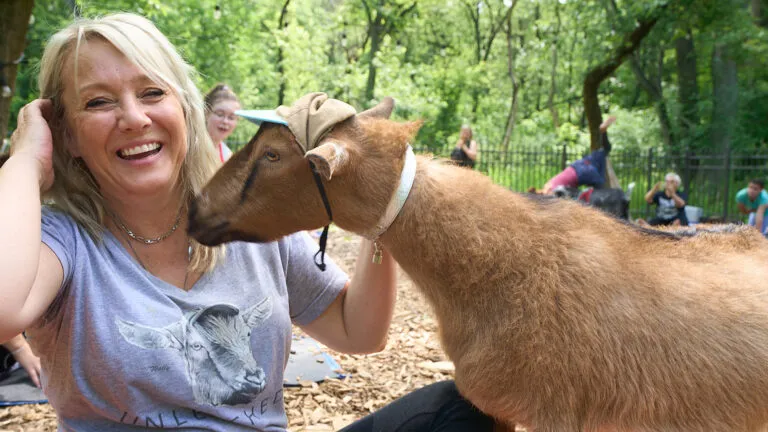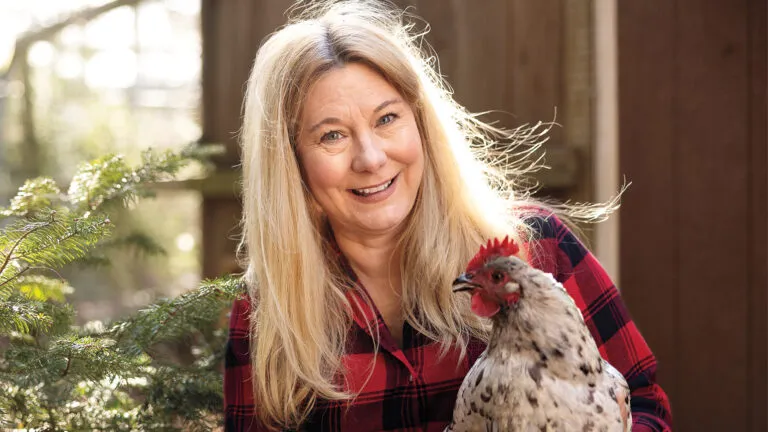Visit Molly Ryan’s house in Parma, Ohio, for the first time, and you’re in for a surprise. It’s not the decor that’s unusual; it’s the 20 rescue animals she shares her home with. And these rescues aren’t just cats and dogs. Ryan, 41, a school psychologist and a longtime licensed wildlife animal rehabilitator, takes in all types of creatures, from woodchucks to pigs.
She’s actually caring for four woodchucks right now. Also known as groundhogs, these creatures get a bad rap, Ryan says. Blame it on their burrowing, which ruins lawns, or their pesky shadows, which are popularly thought to indicate a longer winter. “People think woodchucks are dirty and smelly, but that’s not true,” she says. “I’ve actually never lived with a less smelly animal. They’re like cats; they clean themselves every day.”
And they each have distinct personalities. Coco was found on the brink of death, pecked by birds and blind. Today she’s learned her way around Ryan’s home, is a champion snuggler and loves vanilla Oreos. Don’t try to give her a generic sandwich cookie—she’ll reject it.
Then there’s Captain Lee, who has severe neurological problems, most likely from being hit by a car. He sometimes “whistles” in his sleep and loves to bask in the sun. Snow, a rare albino woodchuck unable to survive in the wild because of her color and poor eyesight, is a bit bossy. She likes to pick out the best of the snacks. And Pie came to Ryan as a baby just last year. “He’s the only animal I’ve ever had who didn’t display the instinct to return to the wild,” she says, describing him as “a ham” who begs for treats from whoever comes to the house.
The rehabber, who’s been bringing home injured wildlife since she was a kid, says woodchucks are very social and highly intelligent. “They answer to their names, have learned to do tricks and stay still for photos,” she notes. With a great sense of smell, they’re also quite particular. Once Ryan tried a different laundry detergent. She came home to find her bed linens rolled up and stuffed under the bed. And that cleanliness habit? She and her husband, Doug, normally clean the litter boxes twice a day. On the few occasions they didn’t get a chance to do so, the woodchucks pulled the curtains, rugs and even a lamp over the boxes to block the odor.
Though most of Ryan’s rescues are eventually returned to the wild, the woodchucks—and two flying squirrels—all have severe handicaps and will live out their lives in her home.
The rest of the crew includes seven dogs, three cats, three skinny pigs (hairless guinea pigs) and an African parrot. The dogs have been trained to understand that their housemates aren’t prey, which is especially crucial since the woodchucks still hibernate, whether that be in bed, a cage or a closet.
Ryan gets the least rest. especially during winter and spring, when she and Doug are inundated with orphaned wildlife babies. “The kindness I see is amazing,” she says. “People will drive hours to bring me a little mouse.”
When she’s not tending to her rescue family at home—with the help of local veterinarian Beth Arnold—Ryan enlists them as education animals, visiting schools, scout troops and parks to teach people that wild animals aren’t scary. “We can all help them thrive,” she says. Even when they warn us there will be six more weeks of winter.
For more inspiring animal stories, subscribe to All Creatures magazine.





